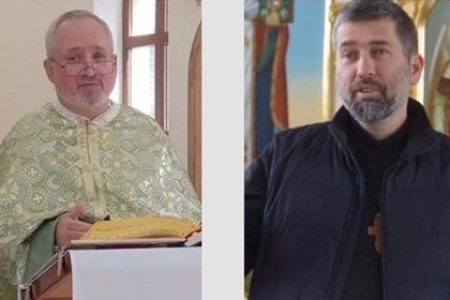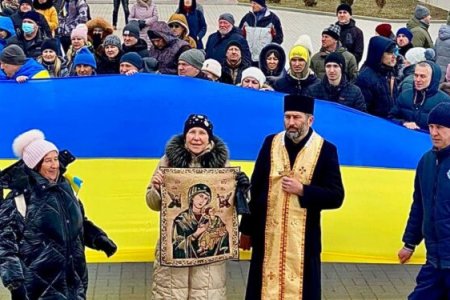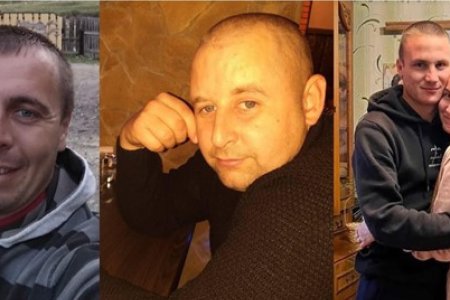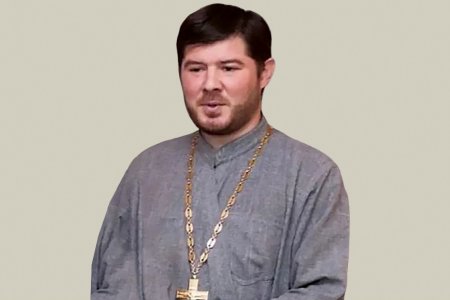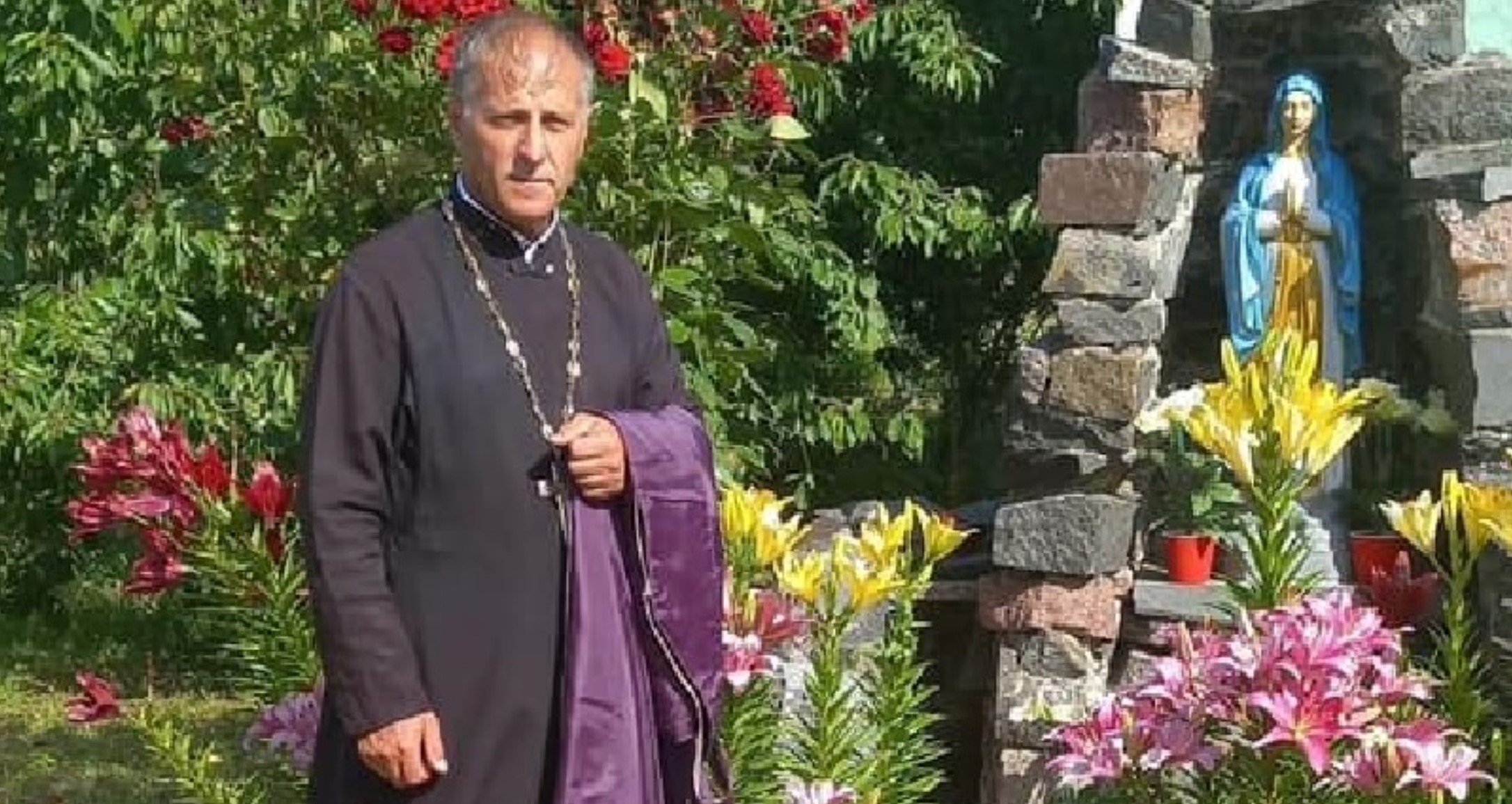
The Russian invaders have, reportedly, killed 59-year-old Stepan Podolchak, a priest of the Orthodox Church of Ukraine and head of a church in occupied Kalanchak (Kherson oblast). While the occupiers claim that Father Stepan died “of a heart attack”, this was two days after the Russians abducted him from his home and took him away, barefooted, and with a bag over his head, having turned his home upside down. Serhiy Danylov, Deputy Director of the Association of Middle East Studies and himself from Kherson oblast, believes there can be no doubt that Father Stepan was tortured to death. Danylov has since been told that the Russians were, yet again, trying to force Father Stepan to transfer his newly built church and its congregation, into the Orthodox Church under the Moscow Patriarch. Father Stepan had refused, insisting that he would not betray his oath nor his congregation.
The Centre for Journalist Investigations [CJI] cites Svitlana Fomina, Head of the Kalanchak Settlement Military Administration, in explaining that Father Stepan was taken from his home on 13 February. Two days later, on 15 February, his wife received a phone call, telling her to come to the morgue to identify her husband. In Fomina’s words, “The Russians tortured him to death. He was the purest person I have ever had the fortune to meet. He was like an angel who had descended to earth – true to God, pure of spirit, honest and just. Stepan Podolchak came to Kalanchak from Lviv oblast and, together with his congregation, for over 10 years he built a church here. He was always pro-Ukrainian, held all services in Ukrainian and prayed for Ukraine, even under occupation. It was perhaps for the reason that the Russians took that most valuable thing that a person has, his life.”
Fomina also pointed out that the head of the local Orthodox church linked to the Moscow Patriarch, Mykhailo Kulyna, had always been hostile to Father Stepan and jealous because people were drawn to Father Stepan’s church, and not to Kulyna’s. However, even if Kulyna was antagonistic to Father Stepan, the latter was seized by the Russian invaders, and it is they who bear direct responsibility for his death while in their custody.
Local residents have told CJI that the occupation regime has behaved extremely aggressively over the last two weeks and are particularly brutal in their treatment of people at checkpoints. This may, they suggest, be a reaction to strikes by Ukraine’s Armed Forces on Russian positions. Successful Ukrainian attacks often lead to the invaders seizing and torturing more civilians. In theory, the invaders are on the hunt for people helping Ukraine’s Armed Forces, however accounts by former hostages suggest that they are often just venting rage or aggression.
In all parts of Ukraine that have fallen under Russian occupation, essentially all faiths except the Russian Orthodox Church have come under attack, with the first abductions and torture of religious figures dating back to 2014. Ukraine is a country of many faiths which have succeeded in living together. This is not something that Russia and the proxy ‘republics’ it installed in occupied Donbas are ever willing to tolerate.
On 26 November 2022, in a forest near occupied Nova Kakhovka (Kherson oblast), the bodies were found of Anatoliy Prokopchuk, an evangelical deacon and his son, Oleksandr. The two men had been abducted four days earlier by Russian soldiers. The family learned on 27 November that both father and son had been shot, with their bodies left in the forest. Oleksandr was just 19 years old, one of six sons and a daughter.
It was learned a little later that the Russians had, on 16 November 2022, abducted Father Bohdan Heleta and Father Ivan Levytsky, two priest monks from the Ukrainian Greek Catholic Church in occupied Berdiansk (Zaporizhzhia oblast). Both men had, despite the danger, remained in Berdiansk after it fell to the Russians, and had also taken part in the peaceful protests against the invasion. Even after the invaders began using force to crush the protests, believers gathered in the centre at midday, with Father Ivan leading prayers for peace. It was during those prayers that Father Ivan was seized, with Father Bohdan abducted that evening.
It was only a week later, on 24 November, that the Russian occupiers admitted that they had seized the two priests. On that day, Russian propaganda media, including TV Zvezda, a channel linked with Russia’s defence ministry, and Izvestia, claimed that “Rosgvardia had detained Ukrainian priests who were discovered to have explosives, detonators and pistols”.
Despite having acknowledged their seizure in order to make such preposterous claims, Russia has not admitted where the men are held, with this of particular concern in the case of Father Bohdan who has medical issues and is unlikely to be receiving proper medication (more details here).
Father Volodymyr Saviyskiy remained in Prymorsk (Zaporizhzhia oblast) for as long as he could after Russia’s full-scale invasion and seizure of the city despite constant harassment, detention and interrogation for continuing to pray for Ukraine and its defenders and for rejecting the Russians’ demand that he report on members of his congregation. He left Prymorsk only after the Russians threatened to get him defrocked, and then put him ‘on trial’. Worth noting that Father Volodymyr was the Head of the Svyato-Mykolsky Cathedral in Prymorsk and a priest of the Ukrainian Orthodox Church affiliated to the Moscow Patriarchate. This may have been why he was not physically tortured but did not stop him being targeted by the invaders because of his refusal to betray his congregation, and Ukraine.
